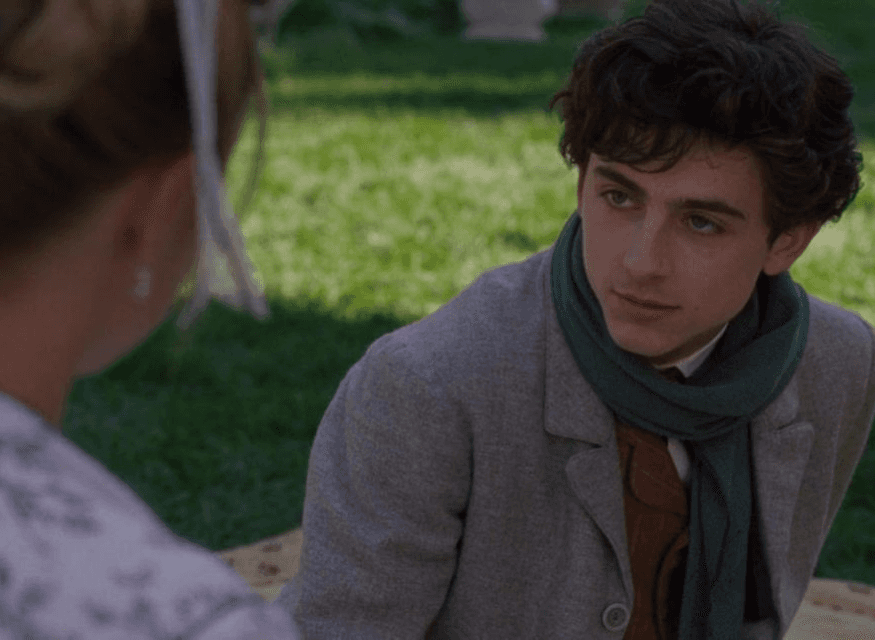7 Lessons That’ll Change the Way You Think About Dating
What I learned from years of overthinking, overanalyzing, and finally letting go.
By
Josh Felgoise
Oct 13, 2025
When I first started dating, I wanted things to work. Every time.
I overthought everything. What I’d say. What I’d wear. How I’d act. I treated every date like the outcome depended on how well I performed.
The harder I tried to control it, the worse it got.
“It’s important to have high expectations about what this could potentially be, but loosely hold those high expectations.”
That line changed everything for me.
Because dating doesn’t fall apart when you care.
It falls apart when you grip it too tightly.
Here are the seven lessons that finally helped me stop forcing connection and start actually enjoying dating.
1. You Can’t Control Chemistry
“I held my expectations so high for every girl that I met in the beginning.”
That was my mistake.
I walked into every date already assigning meaning to it. I wasn’t meeting someone. I was evaluating whether this could become something.
Chemistry doesn’t work like that.
You can’t manufacture ease. You can’t talk your way into a spark. Real chemistry shows up when you’re present enough to notice how something feels instead of trying to steer where it goes.
If uncertainty sends your brain into overdrive, How To Stop Overthinking Everything helps you slow that spiral before it hijacks the moment.
Rejection doesn’t always mean failure. Sometimes it’s feedback. Sometimes it’s clarity.
2. Stop Treating Dates Like Auditions
At one point, a friend told me I was acting like Ted Mosby. He was right.
“It’s so much easier to throw stones at other people’s houses than look at your own.”
I wanted reassurance more than connection. Outcomes more than honesty. And that pressure kills attraction fast.
When dating becomes a performance, nobody wins.
If this feels familiar, How to Talk to Girls Without Overthinking It breaks down why simplicity and presence beat trying to impress every time.
Connection isn’t built by performing.
It’s built by being comfortable enough to show up as yourself.
3. Lower Pressure, Not Standards
“When I started lowering my expectations, I was so much less anxious about trying to make it work.”
This doesn’t mean settling.
It means breathing.
You can want something real without needing every date to prove something about you. You can have standards without forcing a future that doesn’t exist yet.
This is the same tension I talk about in Why Consistency Feels So Hard Even When You Care. Pressure kills momentum. Space lets things grow.
The moment I stopped needing dates to go somewhere, I started enjoying where they actually were.
4. Read the Room, Not the Future
“You don’t know her at all. You’re just getting to know her.”
I used to walk into dates already imagining what came next. Second dates. Third dates. Relationships.
I wasn’t reacting to the moment.
I was reacting to a storyline I’d already written.
You don’t need to read the future.
You need to read the room.
Do you feel relaxed?
Do you feel like yourself?
Does conversation flow?
That’s the only clarity that matters early on.
5. Stop Forcing Connection
“I was trying to fit a square peg in a round hole.”
If effort isn’t matched, forcing it won’t fix it. It just drags things out.
You can’t convince someone to want you. You can only respect what they’re showing you.
If you struggle with interpreting interest versus hope, How Do I Know If She Likes Me helps separate reality from projection.
The best connections feel light. They don’t require chasing, explaining, or overextending.
6. Comparison Will Ruin Your Experience
“I think a lot of guys feel that pressure when friends start getting into relationships.”
Seeing friends couple up can make dating feel urgent. Like you’re behind. Like every date needs to matter.
It doesn’t.
Dating isn’t a race. Comparing your chapter one to someone else’s chapter ten will only make you miserable.
If that pressure shows up beyond dating too, The Truth About Taking a Different Path reframes comparison without panic.
You’re not late.
You’re just living your version.
7. Protect Your Self-Worth
“Don’t tie your entire self-worth to someone else’s approval.”
This is the foundation.
The healthiest dating experiences I’ve had came after I stopped needing validation. When attraction became an addition, not a lifeline.
Psychologists back this up. Research summarized by Psychology Today shows that outcome fixation and anxious attachment increase dating burnout and reduce attraction over time.
Rejection doesn’t reduce your value.
It redirects your energy.
When you stop chasing approval, you start finding alignment.
The Real Takeaway
Dating in your twenties isn’t about getting it right.
It’s about learning what feels right.
Every awkward date, every almost-relationship, every unanswered text teaches you something about yourself.
When you stop trying to make every date work and start paying attention to how it actually feels, dating gets lighter. Clearer. More honest.
Confidence doesn’t come from control.
It comes from trust.
FAQ: Dating With High Expectations, Loosely Held
What does “high expectations, loosely held” actually mean?
Want something real without forcing every date to become it.
Is lowering expectations the same as settling?
No. It’s lowering pressure, not standards.
How do I stop overthinking dates?
Focus on how you feel in the moment, not what it could turn into.
What if I want a relationship?
That’s healthy. Just don’t make every date prove you’ll get one.
How do I protect my confidence while dating?
Don’t tie your self-worth to someone else’s response.










